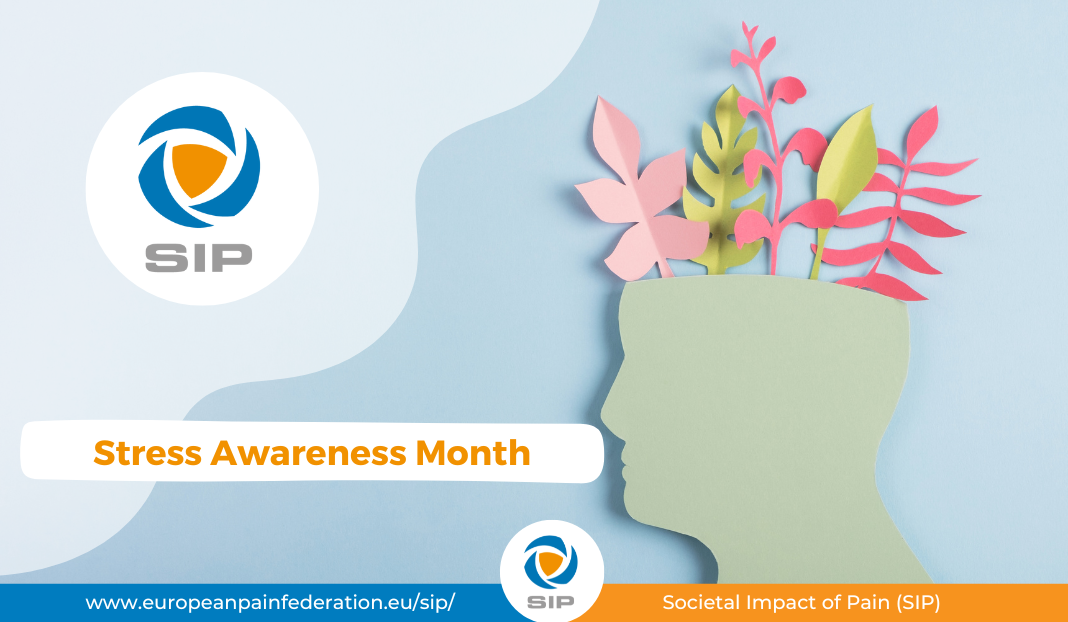April is recognised annually as Stress Awareness Month. The aim is to raise awareness of the causes and effects of stress on individuals, organisations, and society as a whole. This is done by highlighting the importance of stress management, self-care, and relaxation techniques in reducing stress levels and improving overall health and well-being.
This year’s theme is #LeadWithLove, which encourages us to approach ourselves and others with kindness, compassion, and acceptance, no matter the challenges we face.
In the context of stress awareness, it is essential to note that mental health conditions and chronic pain often co-occur and influence one another, creating a vicious cycle of disability. Both can significantly reduce quality of life, mobility, and social participation throughout the lifespan. When treated in isolation, mental health interventions tend to be less effective in patients who also experience chronic pain, and vice versa. Unfortunately, pain is not routinely assessed or addressed in people with mental health conditions. At the same time, mental health conditions like depression are often under-recognised and undertreated in people with chronic pain.
Both chronic pain and mental health conditions are best conceptualised as experiences involving complex interactions between biological, psychological, and social factors. Contemporary management of pain places a large focus on bio-psycho-social assessment and treatment, where all these factors are addressed when relevant to each individual patient.
Recognising and addressing pain in mental health settings and policies is essential to optimise meeting the needs of people with both pain and mental health conditions.
In 2023, SIP published a Joint Statement on Pain and Mental Health to highlight key recommendations to be taken by both EU and national policy makers to promote action and change in the field. In addition to a leaflet summing up the main takeaways from the SIP Joint Statement on Pain and Mental Health! That year, SIP additionally published a Position Paper on Mental Health and Pain.
Further, SIP successfully included more than 25 Amendments to the European Parliament Report on Mental Health, read more here.
